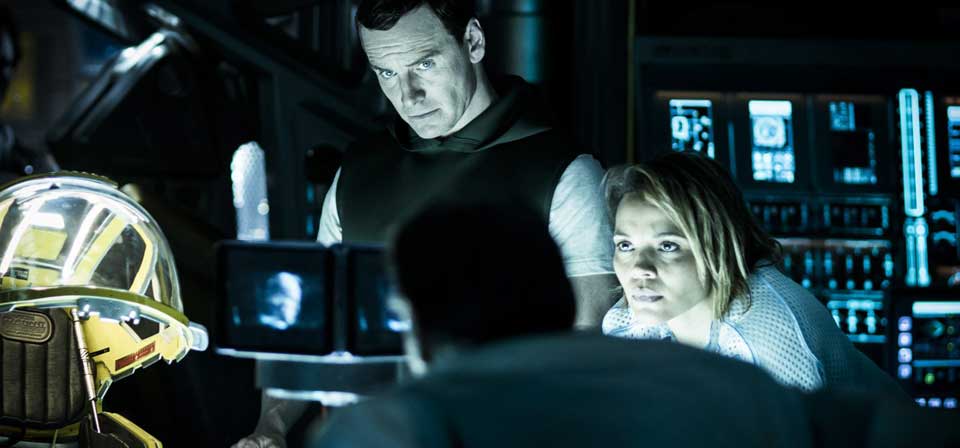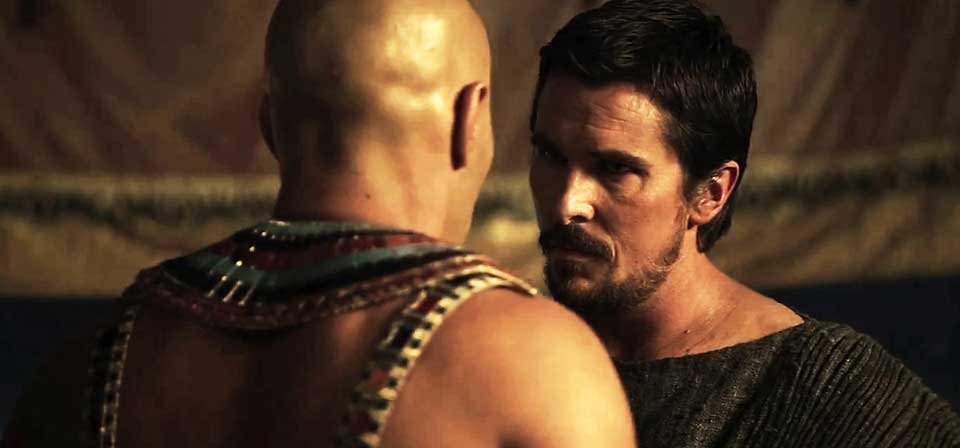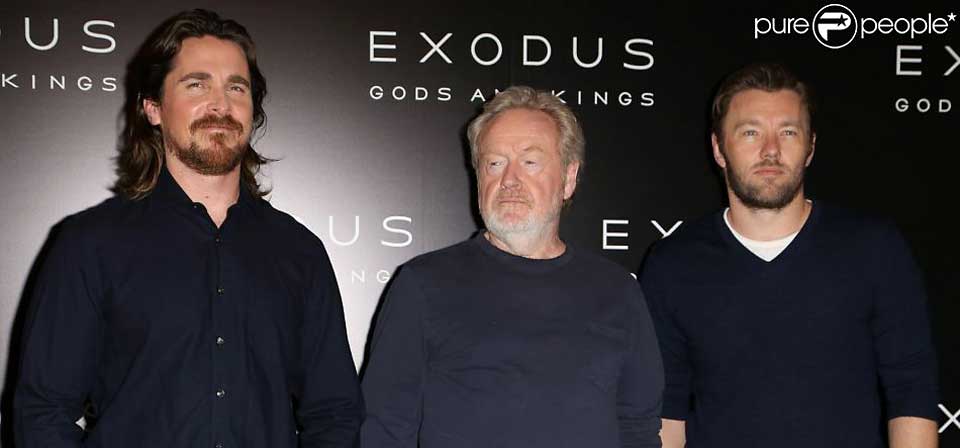Tags :: Ridley Scott

Alien: Covenant (2017)
To succumb to a regrettable but practically inevitable coinage, Scott wants to make the world of Alien great again — to remind us all what was so terrifying nearly four decades ago about being in space where no one can hear you scream.
![Exodus: Gods and Kings [video]](/uploads/articles/exodus-gods-and-kings.jpg)
Exodus: Gods and Kings [video] (2014)
The director of Gladiator, Kingdom of Heaven and Robin Hood takes on the story of Moses.

Exodus: Gods and Kings: Theological reflections
It’s a movie with many problems, like most of Scott’s recent epics (Prometheus, Robin Hood, Kingdom of Heaven), but Scott has a better story to work with here and adds something of value to the world of Bible cinema.

Interview: Exodus: Gods and Kings filmmakers Ridley Scott, Christian Bale and Joel Edgerton
Ridley Scott’s Exodus: Gods and Kings (in theaters Dec. 12) is the year’s second major Old Testament epic from a director who is not a believer — but don’t get Scott started on Noah’s rock-monster Watchers.
From the Crusades to Columbus: Religion in Ridley Scott’s Historical Epics
A self-described atheist, Sir Ridley Scott has developed a generally bleak vision of religion, particularly the Judeo-Christian tradition, throughout his work, above all in historical sagas like Robin Hood (2010) and 1492: Conquest of Paradise (1992).
Prometheus [video]
Prometheus in 60 seconds: my “Reel Faith” review.
Lines I Wish I Had Written: J. R. Jones on Prometheus
It’s been too long since I’ve blogged any great critical lines that made me wish I had written them, but I couldn’t resist the opening line of J. R. Jones’s review of Prometheus — arguably the best possible opening sentence in a Prometheus review…
Prometheus (2012)
I don’t mind that Prometheus raises big questions without ultimately answering them. Unanswered questions are part of life, and there’s no reason you can’t have them in art. I do mind that Prometheus raises big questions and has virtually nothing interesting, insightful or thoughtful to say about them. If the questions aren’t interesting in this film, why should anyone care whether they’re answered in another one?
Lines I Wish I Had Written: Robin Hood
Quoting generously from my longish Robin Hood review, Carl Olsen of Ignatius Insight Scoop adds:
Robin Hood (2010)
Once again a peasant hero reminds us that no man is a knight or peasant but thinking makes him so, and a blacksmith or a stonemason can, and in all likelihood will, shape the destiny of nations. Would you be astonished to learn that there is a proto-feminist heroine who dons armor for the climactic battle? That not only is Richard the Lionheart’s brother John a degenerate, perfidious schemer, Richard himself (briefly seen at the end of Kingdom of Heaven at the outset of his crusade) is a cruel and venal marauder, as bereft of honor as of funds?
Ridley Scott’s Robin Hood and Hollywood Revisionism
The last really solid Hollywood take on the traditional Robin Hood mythos (not counting the Kevin Costner folly, because, well, it doesn’t count) was over 70 years ago, and is essentially the only one in its class (unless you want to go back to the silent era). A revisionist take on Robin Hood would be one thing if the traditionally heroic Robin Hood could be taken for granted as a cultural reference point. What have we come to if we can only view a legendary icon like Robin Hood through skeptical, revisionist lenses?
Kingdom of Heaven (2005)
The story, in fact, could largely be described as the failure of moderate Christians to restrain fanatical Christians from oppressing innocent Muslims, thereby provoking justifiable Muslim retaliation against the Christians, both fanatics and otherwise. Yet Saladin himself is not an uncomplicated noble figure. As he prepares to lay siege to Jerusalem, he explicitly rejects the possibility of showing mercy, relenting only when Balian fights him to a standstill.
Hannibal (2001)
As directed by Ridley Scott (Gladiator), Hannibal is stylishly mounted and has its entertaining moments. Ultimately, though, it’s like most horror movies: repellent where it should have been frightening, and, in the end, uninvolving and hollow. So many characters suffer such ghastly things, yet none of it seems to matter much.
Matchstick Men (2003)
When his supply of meds unexpectedly dries up, Roy predictably disintegrates, much to Frank’s concern. Soon, though, Roy is seeing a psychiatrist (Bruce Altman, Changing Lanes), who not only provides the medication he needs, but gets him talking and thinking about his life — in particular the woman who walked out on him fourteen years ago, and whether or not she was pregnant at the time.
Gladiator (2000)
Director Ridley Scott made his name with the groundbreaking science-fiction films Blade Runner and Alien, both of which, like Gladiator, were triumphs of set design and visual style, memorable more for the haunting worlds they created than for any engaging character development or moral interest. In these earlier films, Scott had the advantage of showing us worlds we had never seen before. Gladiator takes us to familiar territory, though new computer effects and Scott’s strong direction make it worth seeing anyway.
Black Hawk Down (2001)
The shadow of September 11 will not always hang over the movies, but as I watched Ridley Scott’s Black Hawk Down it seemed to be everywhere: an ominous column of smoke rising from a city skyline; people watching helplessly via video screens as a catastrophe unfolds before their eyes in real time; enemies striking an unexpected and terrible blow that seems to be as bad as anything can possibly be — followed by a second, equally terrible blow.
Recent
- Benoit Blanc goes to church: Mysteries and faith in Wake Up Dead Man
- Are there too many Jesus movies?
- Antidote to the digital revolution: Carlo Acutis: Roadmap to Reality
- “Not I, But God”: Interview with Carlo Acutis: Roadmap to Reality director Tim Moriarty
- Gunn’s Superman is silly and sincere, and that’s good. It could be smarter.
Home Video
Copyright © 2000– Steven D. Greydanus. All rights reserved.